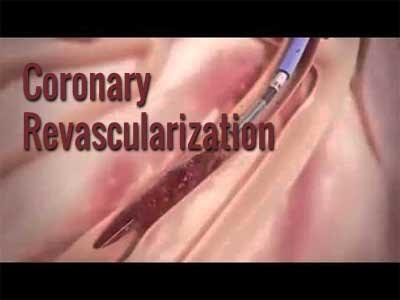- Home
- Editorial
- News
- Practice Guidelines
- Anesthesiology Guidelines
- Cancer Guidelines
- Cardiac Sciences Guidelines
- Critical Care Guidelines
- Dentistry Guidelines
- Dermatology Guidelines
- Diabetes and Endo Guidelines
- Diagnostics Guidelines
- ENT Guidelines
- Featured Practice Guidelines
- Gastroenterology Guidelines
- Geriatrics Guidelines
- Medicine Guidelines
- Nephrology Guidelines
- Neurosciences Guidelines
- Obs and Gynae Guidelines
- Ophthalmology Guidelines
- Orthopaedics Guidelines
- Paediatrics Guidelines
- Psychiatry Guidelines
- Pulmonology Guidelines
- Radiology Guidelines
- Surgery Guidelines
- Urology Guidelines
Complete revascularization PCI has better outcomes than culprit-only PCI

Complete revascularization performed during the primary percutaneous coronary intervention (PCI) is associated with significant reductions in both total mortality and myocardial infarction (MI), according to a new study published in the Journal of the American College of Cardiology (JACC).
The meta-analysis was conducted by Vincenzo Pasceri, a cardiologist at San Filippo Neri Hospital, Rome, Italy, and colleagues to compare complete revascularization with a culprit-only strategy in patients presenting with ST-segment elevation MI (STEMI) and multivessel disease.
The multivessel coronary disease is found in up 40% to 50% of patients with STEMI undergoing revascularization (process of restoring the flow of blood to the heart) by primary PCI and is associated with worse clinical outcomes and increased mortality.
Although several trials have compared complete with culprit-only revascularization in ST-segment elevation MI, it remains unclear whether complete revascularization may lead to improvement in hard endpoints (death and MI).
For the study, randomized trials comparing complete revascularization with culprit-only revascularization in patients with ST-segment elevation MI without cardiogenic shock were identified by a systematic search of published research. Random-effects meta-analysis was performed, comparing clinical outcomes in the 2 groups. Eleven trials were identified, including a total of 3,561 patients.
Key Findings:
- Compared with a culprit-only strategy, complete revascularization significantly reduced the risk for death or MI (relative risk [RR]: 0.76; 95% confidence interval [CI]: 0.58 to 0.99.
- Meta-regression showed that performing complete revascularization at the time of primary PCI was associated with better outcomes.
- The 6 trials performing complete revascularization during primary PCI (immediate revascularization) were associated with a significant reduction in risk for both total mortality (RR: 0.62; 95% CI: 0.39 to 0.97 and MI (RR: 0.40; 95% CI: 0.25 to 0.66).
- The 5 trials performing only staged revascularization did not show any significant benefit in either total mortality (RR: 1.02; 95% CI: 0.65 to 1.62; p = 0.87) or MI (RR: 1.04; 95% CI: 0.48 to 1.68).
On the basis of the results, the investigators concluded that when feasible, complete revascularization with PCI can significantly reduce the combined endpoint of death and MI. Complete revascularization performed during primary PCI was also associated with significant reductions in both total mortality and MI, whereas staged revascularization did not improve these outcomes.

Disclaimer: This site is primarily intended for healthcare professionals. Any content/information on this website does not replace the advice of medical and/or health professionals and should not be construed as medical/diagnostic advice/endorsement or prescription. Use of this site is subject to our terms of use, privacy policy, advertisement policy. © 2020 Minerva Medical Treatment Pvt Ltd